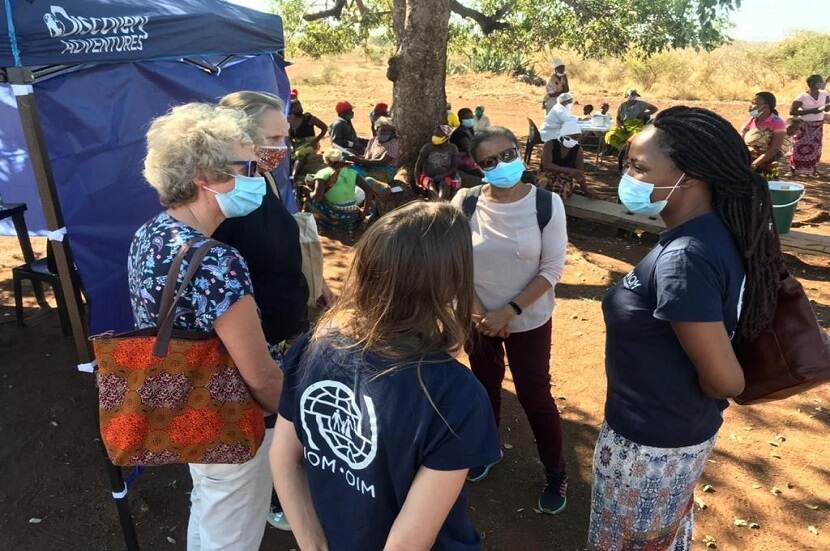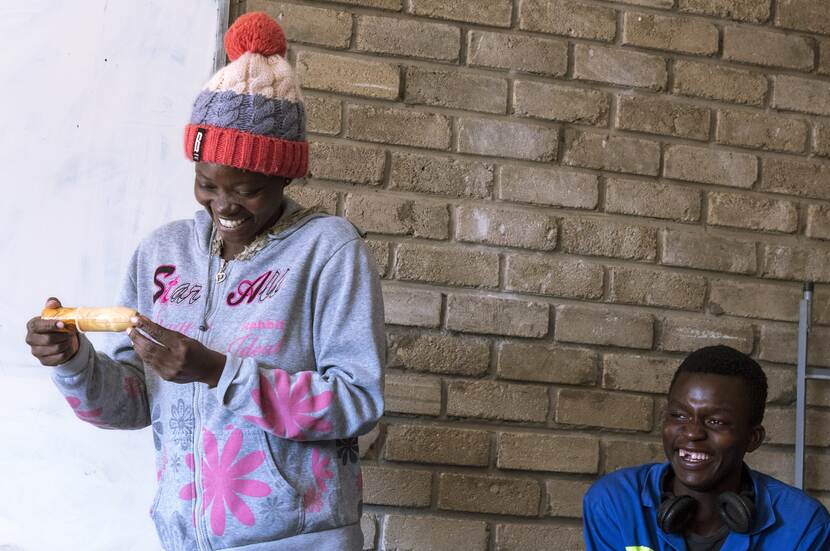Fighting AIDS restores hope
Worldwide, 37.7 million people are living with HIV and AIDS. For more than 20 years, Els Klinkert has been committed to fighting the virus. She has contributed to international AIDS programmes, and has worked in many countries to improve people’s lives. She is currently working at the embassy in Mozambique as a theme expert on a regional programme for sexual and reproductive health and rights (SRHR). ‘The Netherlands will keep up its commitment to fight AIDS,’ she says. ‘We really have a lot to offer.’

We still have no cure for HIV and AIDS. Antiretrovirals supress the virus and are so effective that if people take their pills regularly they cannot infect anyone else with HIV. In Mozambique, lack of information and misinformation lead to stigmatisation of people living with HIV. They often feel guilty. This is wrong, says Els. ‘ You really are fine if you’re taking antiretrovirals,’ she says. But unfortunately, many people are scared of having themselves tested or receiving treatment. ‘You find empty medicine packages scattered around hospitals. People are ashamed to take them home.’
At-risk groups
Girls and young women in particular are becoming infected with the virus. That is very clearly the case in southern Africa. They have unprotected sex with older men who have HIV. For many women, refusing to have sex is unthinkable. And it’s not done for young women to buy condoms, because that means risking your reputation.
Sex workers and LGBTI people are disproportionately affected by HIV as well – sex workers by the nature of their work. They are often unable to demand safe sex, or their clients refuse to use a condom. Men who have sex with men and transgender people also run a greater risk of contracting HIV. In many countries they are treated as criminals, so they avoid healthcare services, don’t have themselves tested and often don’t use condoms. And many of them don’t even know that they run the risk of contracting HIV.
Injecting drug users are another vulnerable group. They often share needles, which is a highly effective way of transmitting the virus. None of these groups are popular with government authorities, so too little is invested in them. Many donors are also reluctant to work with difficult groups like sex workers, gay men, transgender people or people who use drgs.

AIDS programme
The regional programme focuses on southern Africa, which has the greatest proportion of people living with HIV. Sex education plays a major part. This always includes a form of empowerment, an indispensable element, according to Els. ‘It always makes me really happy to hear girls say that the training and information have helped them understand that they can say no to unsafe sex,’ she says. ‘That still can’t be taken as a given here.’
‘Girls sometimes think that if a boy asks for sex, they have to comply. Or if they don’t feel like it, that they have to come up with a lot of reasons why they really can’t. Many girls still have to learn that they themselves can draw the line. Unfortunately, that’s still part of the culture here.’
Through the programme that Els is managing, girls regain their self-confidence and the ability to earn a living. ‘I find that truly inspirational,’ says Els. ‘What I’ve also learned is that investing in young people pays dividends. It sometimes takes a while, but they’ll seize their opportunities, and see a future opening up for them. That’s what makes this work so rewarding. I see things changing.’
Hope
Restoring people’s prospects: that’s what it’s all about. ‘That’s the most inspiring thing about my work,’ says Els. ‘To see that young people have regained their self-confidence, have a more positive attitude to the future, and make safe, healthy choices in life. Hope is so important. The Netherlands will keep up its efforts to fight AIDS. We really have a lot to offer.’
Els cites the example of a 24-year-old single mother of two children. She was never able to finish school. ‘Her mother couldn’t afford it. In southern Africa, it’s seen as the duty of young people to contribute to the family income. Becoming a sex worker was the only thing she could think of, and what she felt she was capable of. As a result she faced violence and discrimination, until she met a change agent. That’s a local person trained to provide information and refer people to training courses.’
‘She didn’t waste any time because she immediately felt that this was her chance,’ Els continues. ‘She went to the offices to sign up for the baking and pastry courses. After a few weeks of training she could bake cookies, cakes and muffins. She was even supplied with a small oven.’ She can now bake cakes for a living, and she earns more than she did as a sex worker. Her life has changed completely, for the better. She’s now a role model for other young people in her neighborhood. There are many more stories like this, where hope has been restored, and people can get a grip on their lives.’